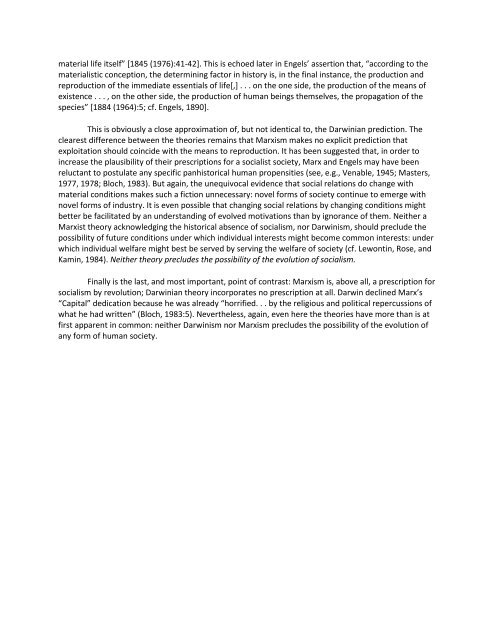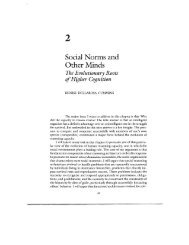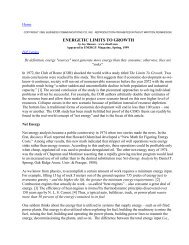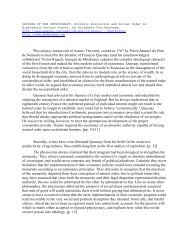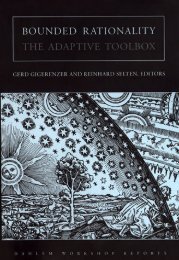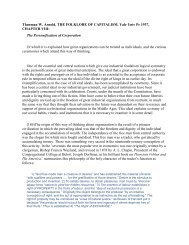DESPOTISM AND DIFFERENTIAL REPRODUCTION: A Darwinnian ...
DESPOTISM AND DIFFERENTIAL REPRODUCTION: A Darwinnian ...
DESPOTISM AND DIFFERENTIAL REPRODUCTION: A Darwinnian ...
Create successful ePaper yourself
Turn your PDF publications into a flip-book with our unique Google optimized e-Paper software.
material life itself” [1845 (1976):41-42]. This is echoed later in Engels’ assertion that, “according to the<br />
materialistic conception, the determining factor in history is, in the final instance, the production and<br />
reproduction of the immediate essentials of life[,] . . . on the one side, the production of the means of<br />
existence . . . , on the other side, the production of human beings themselves, the propagation of the<br />
species” [1884 (1964):5; cf. Engels, 1890].<br />
This is obviously a close approximation of, but not identical to, the Darwinian prediction. The<br />
clearest difference between the theories remains that Marxism makes no explicit prediction that<br />
exploitation should coincide with the means to reproduction. It has been suggested that, in order to<br />
increase the plausibility of their prescriptions for a socialist society, Marx and Engels may have been<br />
reluctant to postulate any specific panhistorical human propensities (see, e.g., Venable, 1945; Masters,<br />
1977, 1978; Bloch, 1983). But again, the unequivocal evidence that social relations do change with<br />
material conditions makes such a fiction unnecessary: novel forms of society continue to emerge with<br />
novel forms of industry. It is even possible that changing social relations by changing conditions might<br />
better be facilitated by an understanding of evolved motivations than by ignorance of them. Neither a<br />
Marxist theory acknowledging the historical absence of socialism, nor Darwinism, should preclude the<br />
possibility of future conditions under which individual interests might become common interests: under<br />
which individual welfare might best be served by serving the welfare of society (cf. Lewontin, Rose, and<br />
Kamin, 1984). Neither theory precludes the possibility of the evolution of socialism.<br />
Finally is the last, and most important, point of contrast: Marxism is, above all, a prescription for<br />
socialism by revolution; Darwinian theory incorporates no prescription at all. Darwin declined Marx’s<br />
“Capital” dedication because he was already “horrified. . . by the religious and political repercussions of<br />
what he had written” (Bloch, 1983:5). Nevertheless, again, even here the theories have more than is at<br />
first apparent in common: neither Darwinism nor Marxism precludes the possibility of the evolution of<br />
any form of human society.


